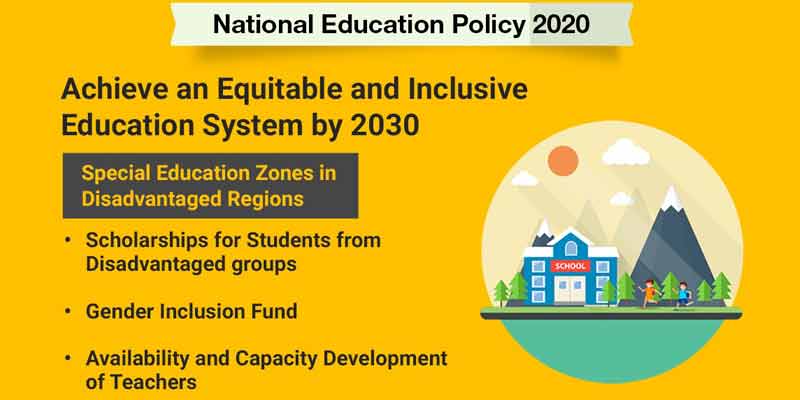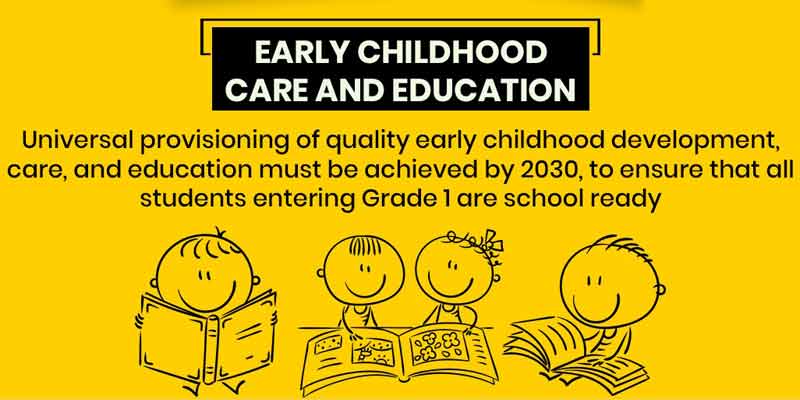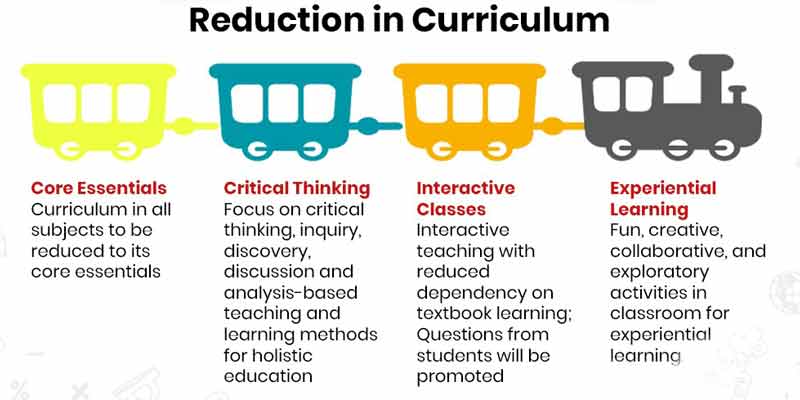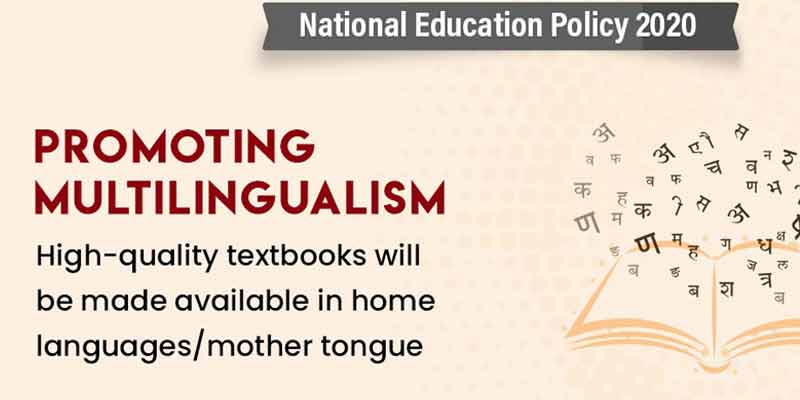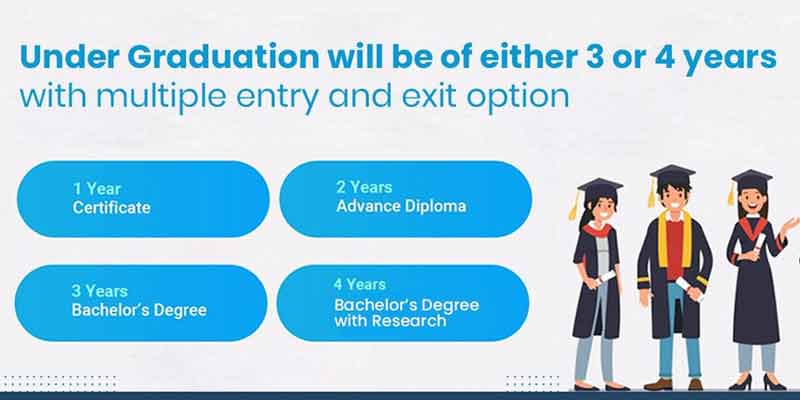- India
- Jul 30
New education policy gets Cabinet nod
The Union Cabinet chaired by PM Narendra Modi approved the National Education Policy (NEP) 2020, making way for large scale reforms in both school and higher education sectors.
This is the first education policy of the 21st century and replaces the 34-year-old National Policy on Education (NPE), 1986.
Built on the foundational pillars of access, equity, quality, affordability and accountability, this policy is aligned to the 2030 Agenda for Sustainable Development. It aims to transform India into a vibrant knowledge society and global knowledge superpower by making both school and college education more holistic, flexible, multidisciplinary, suited to 21st century needs and aimed at bringing out the unique capabilities of each student.
The Centre and states will work together to increase the public investment in the education sector to reach 6 per cent of GDP at the earliest.
Formulation of NEP 2020
NEP 2020 has been formulated after an unprecedented process of consultation that involved nearly over two lakh suggestions from 2.5 lakhs Gram Panchayats, 6,600 Blocks, 6,000 urban local bodies, 676 districts.
The HRD ministry initiated an unprecedented collaborative, inclusive and highly participatory consultation process from January 2015. In May 2016, ‘Committee for Evolution of the New Education Policy’ under the chairmanship of T.S.R. Subramanian, former Cabinet secretary, submitted its report. Based on this, the ministry prepared ‘Some Inputs for the Draft National Education Policy, 2016’.
In June 2017, a ‘Committee for the Draft National Education Policy’ was constituted under the chairmanship of Dr. K. Kasturirangan, which submitted the Draft National Education Policy, 2019.
NEP 2020 at a glance
School Education
• Ensuring universal access to school education at all levels — pre school to secondary.
• Infrastructure support, innovative education centres to bring back dropouts into the mainstream.
• Tracking of students and their learning levels.
• Facilitating multiple pathways to learning involving both formal and non-formal education modes.
• Association of counselors or well-trained social workers with schools.
• Open learning for classes 3,5 and 8 through the National Institute of Open Schooling (NIOS) and state open schools.
• Secondary education programmes equivalent to Grades 10 and 12.
• Vocational courses, adult literacy and life-enrichment programmes
• About 2 crore out of school children will be brought back into mainstream.
• With emphasis on early childhood care and education, the 10+2 structure of school curricula is to be replaced by a 5+3+3+4 curricular structure corresponding to ages 3-8, 8-11, 11-14, and 14-18 years respectively.
• New system will have 12 years of schooling with three years of anganwadi/ pre-schooling.
• National Curricular and Pedagogical Framework for Early Childhood Care and Education (NCPFECCE) for children up to the age of 8 to be delivered through anganwadis and pre-schools teachers.
• MHRD will set up a National Mission on Foundational Literacy and Numeracy
• Plans to be prepared by states for attaining universal foundational literacy and numeracy in all primary schools for all learners by grade 3 by 2025.
• National Book Promotion Policy is to be formulated.
• The school curricula and pedagogy will aim for holistic development of learners by equipping them with the key 21st century skills, reduction in curricular content to enhance essential learning and critical thinking and greater focus on experiential learning.
• Students will have increased flexibility and choice of subjects.
• Vocational education will start in schools from the 6th grade, and will include internships.
• A new and comprehensive National Curricular Framework for School Education, NCFSE 2020-21, will be developed by the NCERT.
• NEP has emphasised mother tongue/local language/regional language as the medium of instruction at least till Grade 5, but preferably till Grade 8 and beyond.
• Sanskrit to be an optional subject at all levels of school and higher education.
• No language will be imposed on any student.
• Several foreign languages will also be offered at the secondary level.
• Indian Sign Language (ISL) will be standardised across the country, and National and State curriculum materials developed, for use by students with hearing impairment.
• NEP envisages a shift from summative assessment to regular and formative assessment, which is more competency-based, promotes learning and development, and tests higher-order skills, such as analysis, critical thinking, and conceptual clarity.
• Board exams for Grades 10 and 12 will be continued, but redesigned with holistic development as the aim.
• A new National Assessment Centre, PARAKH (Performance Assessment, Review, and Analysis of Knowledge for Holistic Development), will be set up as a standard-setting body.
• The new policy aims to ensure that no child loses any opportunity to learn and excel.
• Special emphasis will be given on Socially and Economically Disadvantaged Groups (SEDGs).
• Setting up of a Gender Inclusion Fund and also Special Education Zones for disadvantaged regions and groups.
• Will support the establishment of Bal Bhavans as a special daytime boarding school in each state/district.
• Free school infrastructure can be used as Samajik Chetna Kendras.
• Teachers will be recruited through robust, transparent processes. Promotions will be merit-based, with a mechanism for multi-source periodic performance appraisals.
• National Professional Standards for Teachers (NPST) will be developed by the National Council for Teacher Education by 2022.
• The policy envisages clear, separate systems for policy making, regulation, operations and academic matters. States/UTs will set up an independent State School Standards Authority (SSSA).
Higher Education
• NEP 2020 aims to increase the Gross Enrolment Ratio in higher education including vocational education from 26.3 per cent (2018) to 50 per cent by 2035.
• 3.5 crore new seats will be added to higher education institutions.
• Broad based, multi-disciplinary, holistic undergraduate education with flexible curricula, creative combinations of subjects, integration of vocational education and multiple entry and exit points with appropriate certification.
• UG education can be of 3 or 4 years with certificate after 1 year, Advanced Diploma after 2 years, Bachelor’s Degree after 3 years and Bachelor’s with Research after 4 years.
• Academic Bank of Credit is to be established for digitally storing academic credits earned from different higher education institutions so that these can be transferred and counted towards the final degree earned.
• Multidisciplinary Education and Research Universities (MERUs), at par with IITs, IIMs, to be set up as models.
• A National Mission for Mentoring will be established.
• Efforts will be made to incentivise the merit of students belonging to SC, ST, OBC, and other SEDGs.
• The National Scholarship Portal will be expanded to support, foster, and track the progress of students receiving scholarships.
• Plans to achieve 100 per cent youth and adult literacy.
• The National Research Foundation will be created as an apex body for fostering a strong research culture.
• The definition of university will allow a spectrum of institutions that range from Research-intensive Universities to Teaching-intensive Universities and Autonomous degree-granting colleges.
• A new and comprehensive National Curriculum Framework for Teacher Education, NCFTE 2021, will be formulated by the NCTE in consultation with NCERT. By 2030, the minimum degree qualification for teaching will be a four-year integrated B.Ed degree.
• An autonomous body, the National Educational Technology Forum (NETF), will be created to provide a platform for the free exchange of ideas on the use of technology to enhance learning, assessment, planning, administration.
Higher Education Commission of India
Higher Education Commission of India (HECI) will be set up as a single overarching umbrella body for the entire higher education, excluding medical and legal education.
HECI will have four independent verticals — National Higher Education Regulatory Council (NHERC) for regulation, General Education Council (GEC) for standard setting, Higher Education Grants Council (HEGC) for funding, and National Accreditation Council( NAC) for accreditation.
Manorama Yearbook app is now available on Google Play Store and iOS App Store

